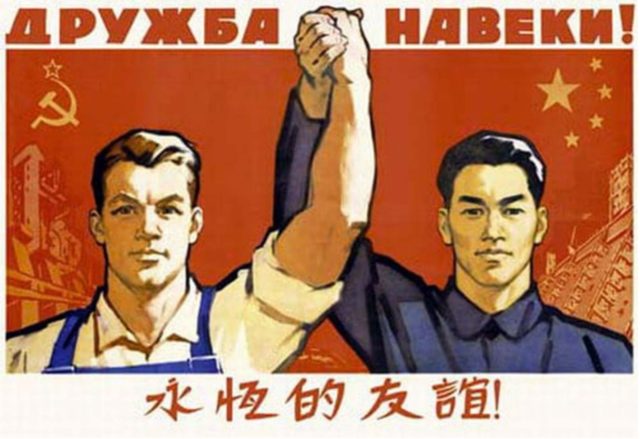Dear Comrade Vlad,
The People’s Republic of China, the Chinese Communist Party and I were greatly honored to host you at the opening ceremony of the XXIV Olympic Winter and Paralympic Games in Beijing. Your presence was greatly appreciated, and I was very glad that after many meetings prior to 4 February 2022 (a day that we will always remember as being the beginning of our unlimited friendship), we were able to sign so many agreements and statements. Most importantly, we signed the Joint Statement of the Russian Federation and the People’s Republic of China on the International Relations Entering a New Era and the Global Sustainable Development agreeing to work together to achieve our national ambitions – together. As you know, we both “oppose further enlargement of NATO and call on the North Atlantic Alliance to abandon its ideologized cold war approaches, to respect the sovereignty, security and interests of other countries, the diversity of their civilizational, cultural and historical backgrounds, and to exercise a fair and objective attitude towards the peaceful development of other States.” Just as important, Russia “reaffirms its support for the One-China principle, confirms that Taiwan is an inalienable part of China, and opposes any forms of independence of Taiwan.”
It is with a heavy heart that I write you this letter to share with you some wisdom that the great Chairman Mao wrote after fighting Imperial Japanese forces in China and while he was smashing the dictatorial Chiang Kai-shek government. These principles will help you and your liberation forces in your important endeavor of freeing Russians from the clutches of European and U.S. imperialism and to secure the important parts of Ukraine for our mutual strategic interests.
Please find below Mao’s ten principles of military operations that he learned from his struggles:
“(1) Attack dispersed isolated enemy forces first; attack concentrated strong enemy forces later.
(2) Take small and medium cities and extensive rural areas first; take big cities later.
(3) Make wiping out the enemy’s effective strength our main objective; do not make holding or seizing a city or place our main objective. Holding or seizing a city or place is the outcome of wiping out the enemy’s effective strength, and often a city or place can be held or seized for good only after it has changed hands a number of times.
(4) In every battle, concentrate an absolutely superior force (two, three, four and sometimes even five or six times the enemy’s strength), encircle the enemy forces completely, strive to wipe them out thoroughly and do not let any escape from the net. In special circumstances, use the method of dealing the enemy crushing blows, that is, concentrate all our strength to make a frontal attack and an attack on one or both of his flanks, with the aim of wiping out one part and routing another so that our army can swiftly move its troops to smash other enemy forces. Strive to avoid battles of attrition in which we lose more than we gain or only break even. In this way, although inferior as a whole (in terms of numbers), we shall be superior in every part and every specific campaign, and this ensures victory in the campaign. As time goes on, we shall become superior as a whole and eventually wipe out the entire enemy.
(5) Fight no battle unprepared, fight no battle you are not sure of winning; make every effort to be well prepared for each battle, make every effort to ensure victory in the given set of conditions as between the enemy and ourselves.
(6) Give full play to our style of fighting – courage in battle, no fear of sacrifice, no fear of fatigue, and continuous fighting (that is, fighting successive battles in a short time without rest).
(7) Strive to wipe out the enemy when he is on the move. At the same time, pay attention to the tactics of positional attack and capture enemy fortified points and cities.
(8) Concerning attacking cities, resolutely seize all enemy fortified points and cities that are weakly defended. At opportune moments, seize all enemy fortified points and cities defended with moderate strength, provided circumstances permit. As for all strongly defended enemy fortified points and cities, wait until conditions are ripe and then take them.
(9) Replenish our strength with all the arms and most of the personnel captured from the enemy. Our army’s main sources of manpower and materiel are at the front.
(10) Make good use of the intervals between campaigns to rest, train and consolidate our troops. Periods of rest, training and consolidation should not in general be very long, and the enemy should as far as possible be permitted no breathing space.” [From “The Present Situation and Our Tasks” (December 25, 1947), Mao’s Selected Military Writings]
Please let me know if you or your staff would like to discuss these principles. I look forward to seeing you in Moscow when we will sign our next agreement and move forward on our second phase of bringing justice and liberation to the world with the Joint Political Warfare and Joint Military Campaign Plans for the Return of Taiwan to the People’s Republic of China.
Your comrade in arms,
Xi Jinping
Chairman, Chinese Communist Party


